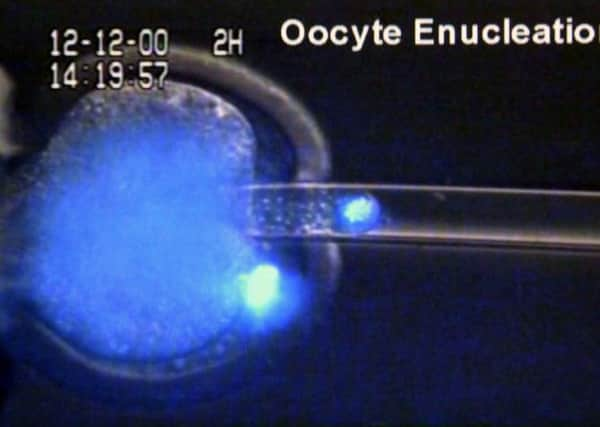£11m boost for university’s medicine research project


Experts at Edinburgh University are working to use the latest scientific technology to fight disease and improve medical treatments – a move tipped to put the institution at the forefront of the field.
The university’s Centre for Mammalian Synthetic Biology has been given £11.4m from a £40m UK Government fund to accelerate its work.
Advertisement
Hide AdAdvertisement
Hide AdScientists are exploring how stem cells can be reprogrammed for use in medicines and are building tools to help identify new types of drugs.
The team will be joining forces with Liverpool University to study the design and synthesis of DNA circuits, while work will also be carried out with Cambridge University. Professor Susan Rosser, director of the Centre for Mammalian Synthetic Biology, said no major breakthroughs were imminent, but that the cash would come as a huge boost to the research.
She said: “This further strengthens Edinburgh’s position as a leading centre for synthetic biology in the UK.
“Applying this powerful technology for human medicine is still in its infancy but Edinburgh is well-positioned to take a lead with its pioneering research in cell biology, stem cells and epigenetics.”
The funding was announced yesterday by Business Secretary Vince Cable as part of a major government investment in emerging science.
Synthetic biology research centres will be created at Manchester and Warwick universities as part of the £40m funding.
Professor Peter Swain, director of Edinburgh’s synthetic biology research group, said the Capital experts were among the best in the business.
He said: “This new funding recognises Edinburgh’s role as one of the leaders of synthetic biology in the UK.
Advertisement
Hide AdAdvertisement
Hide Ad“We are excited about bringing together two of the university’s strengths – regenerative medicine and systems and synthetic biology.”
The investment is being funded by the Biotechnology and Biological Sciences Research Council (BBSRC), the Engineering and Physical Sciences Research Council (EPSRC), the Medical Research Council (MRC) and the UK Government.
BBSRC chief executive Jackie Hunter said: “Through previous investments, BBSRC along with funding partners has been able to position the UK as a world leader in synthetic biology.
“This new investment will ensure the UK maintains this leadership position and continues to drive the potential of synthetic biology to contribute to the economy and society.”